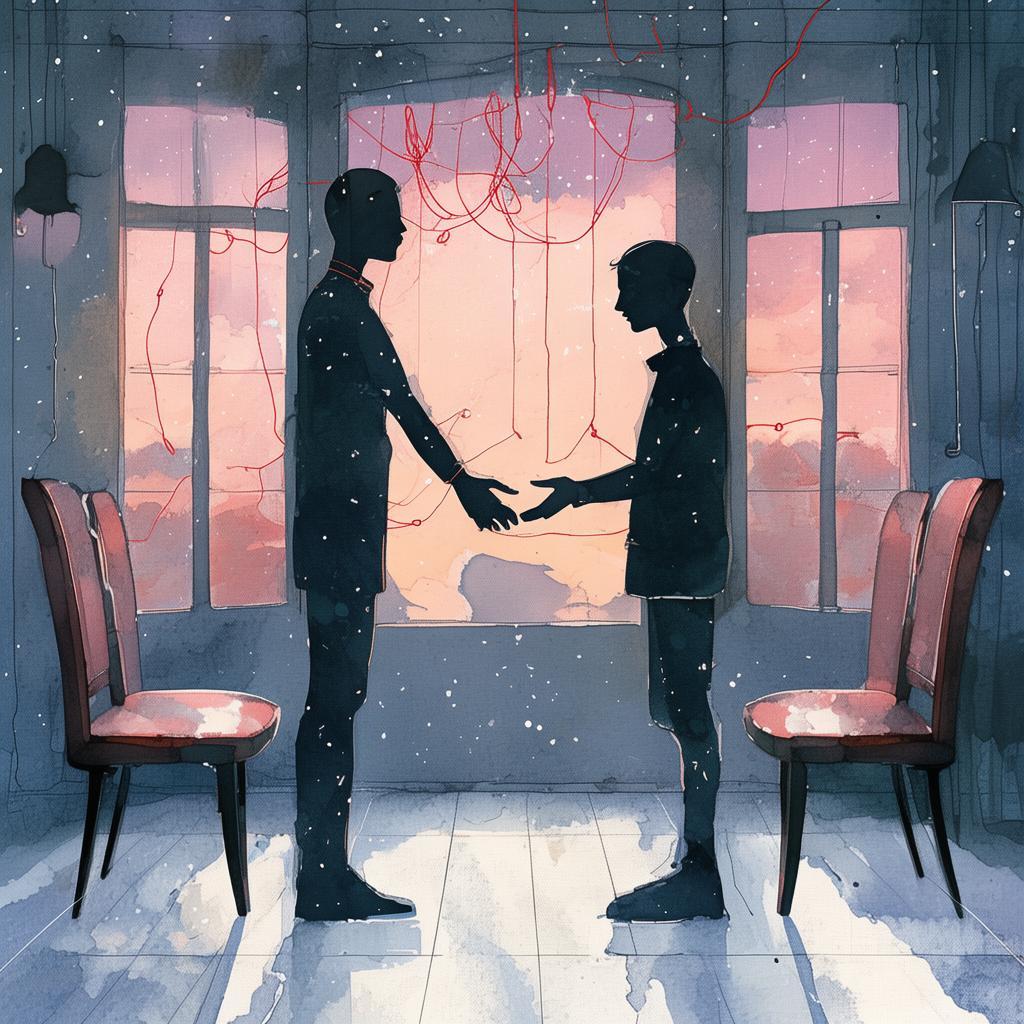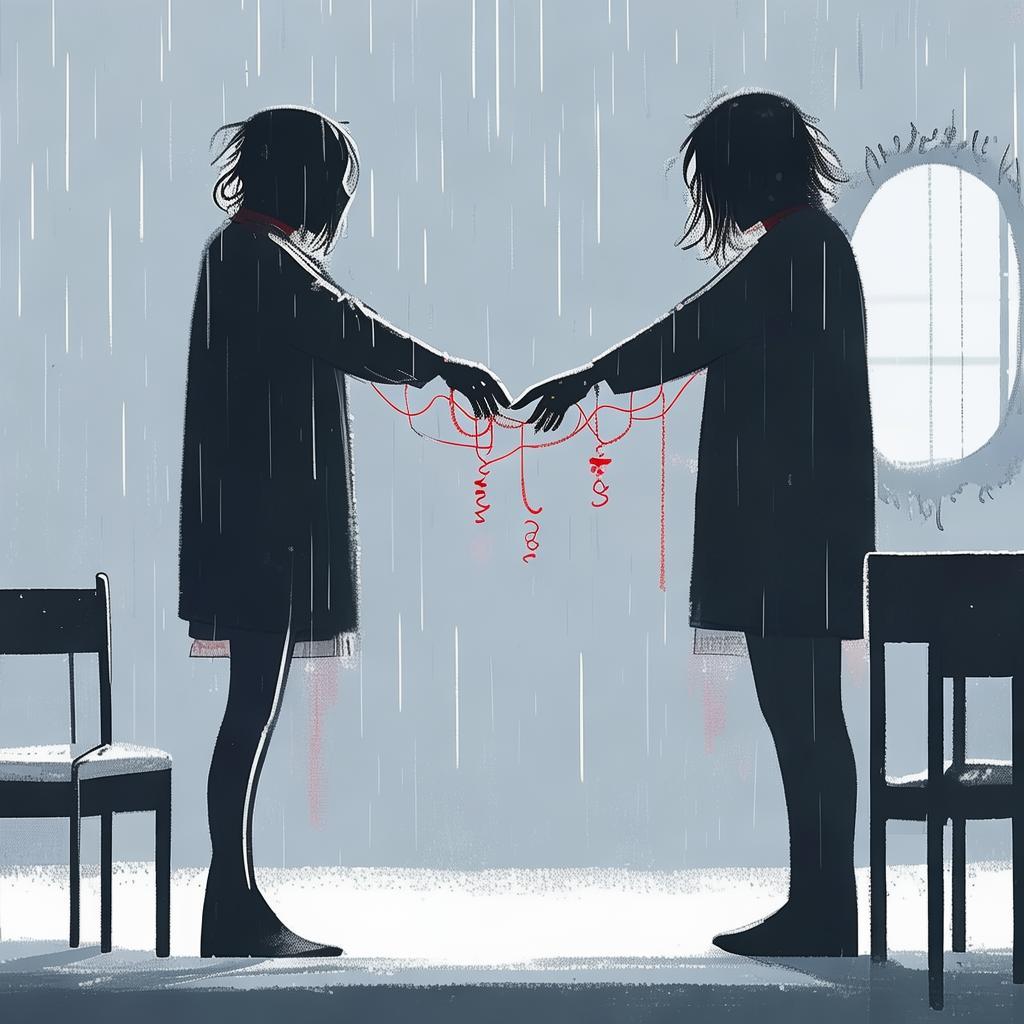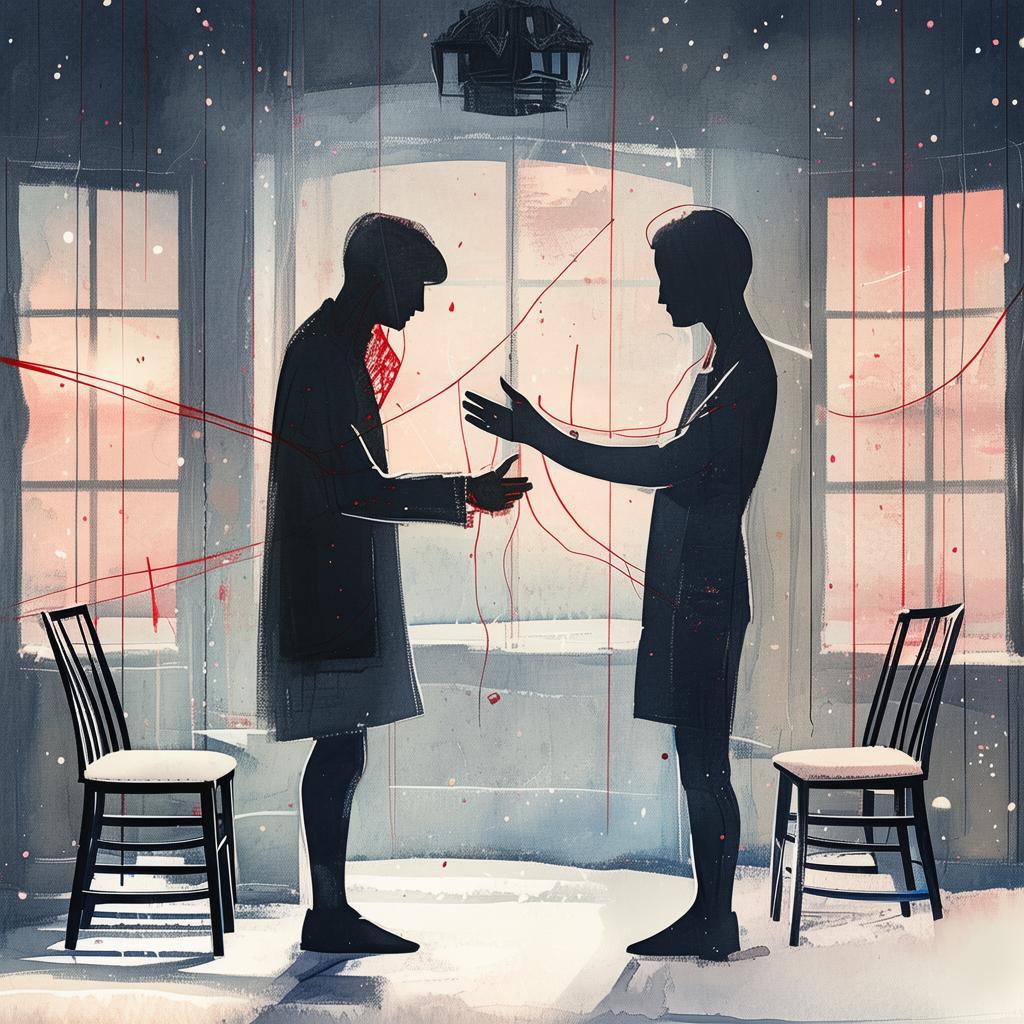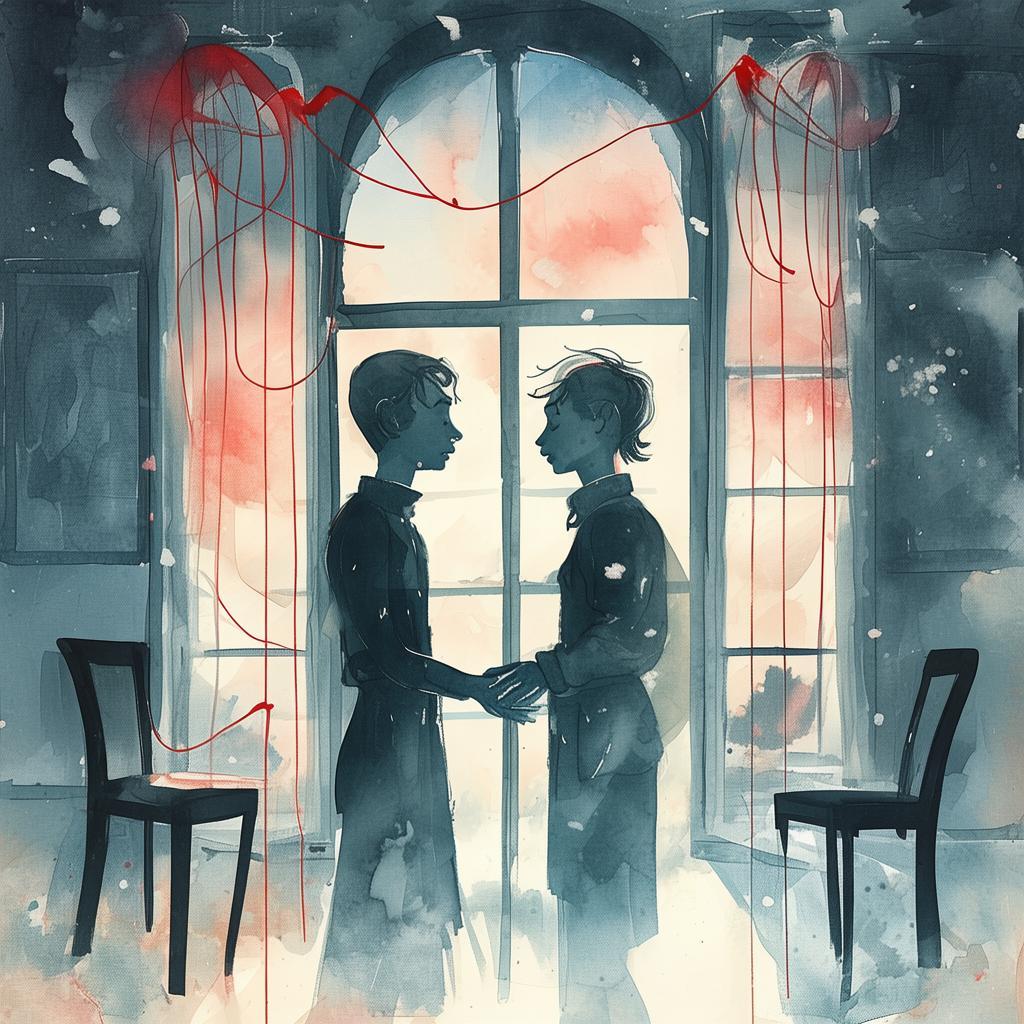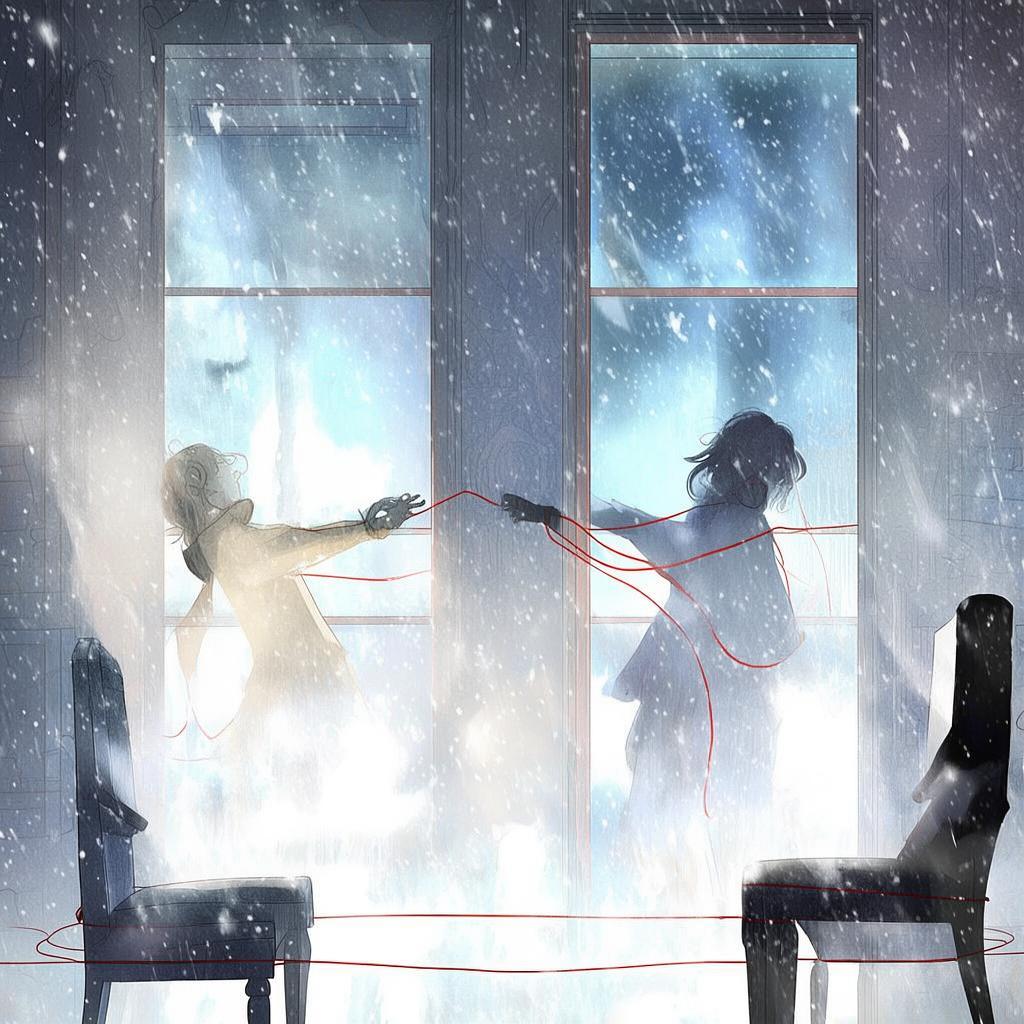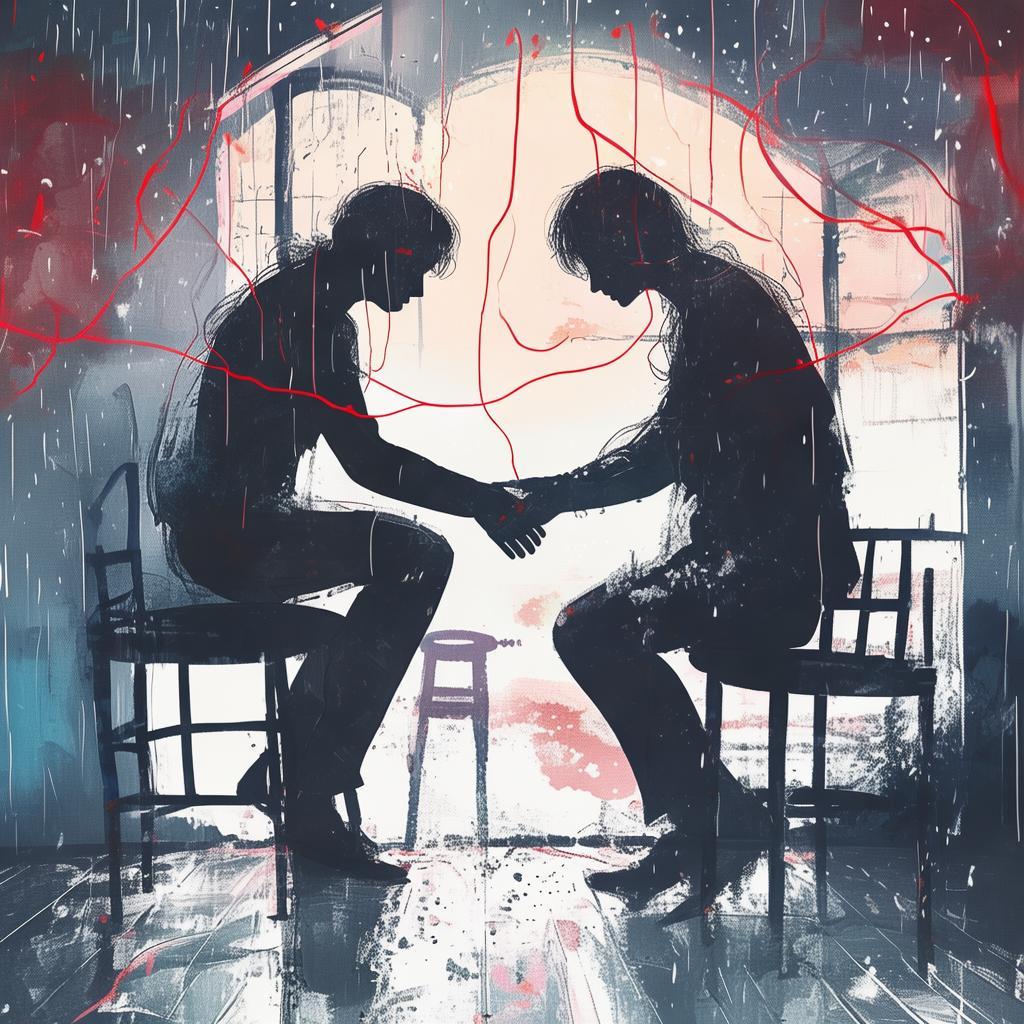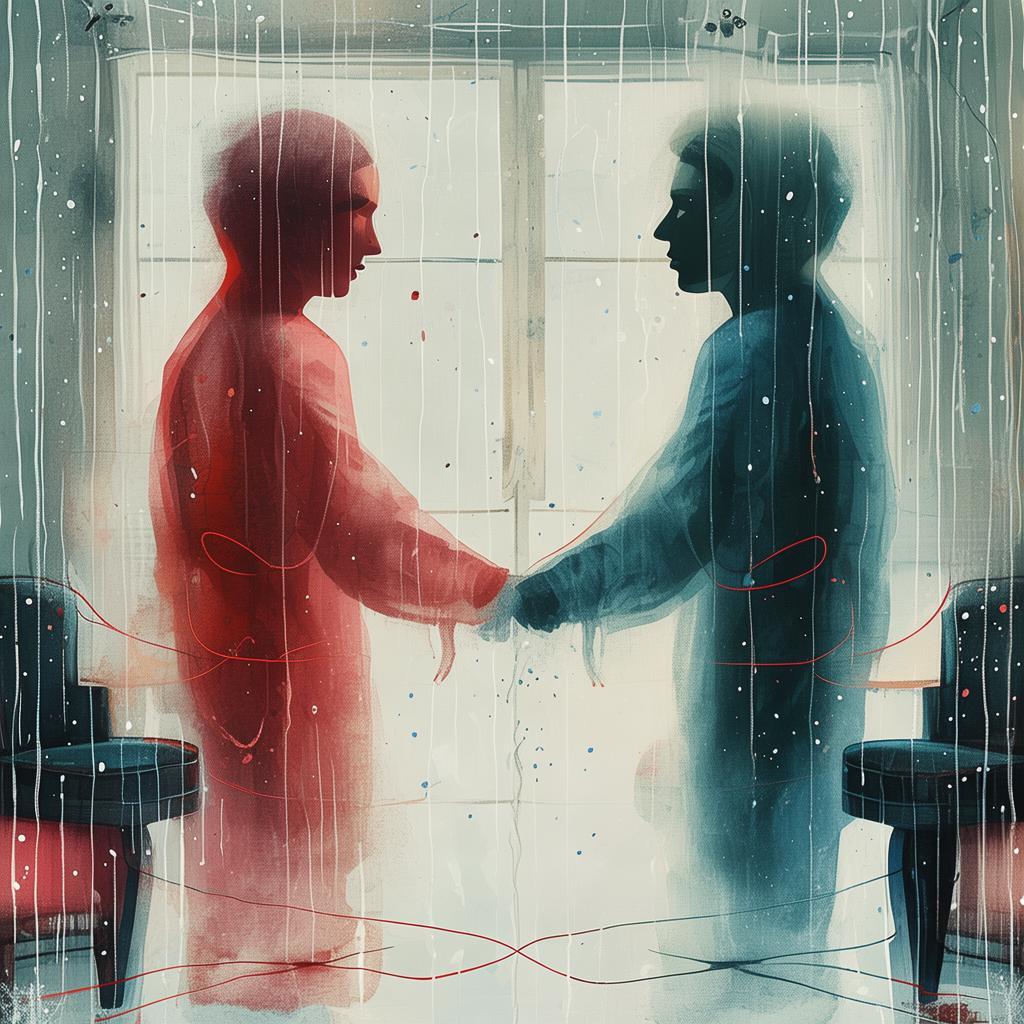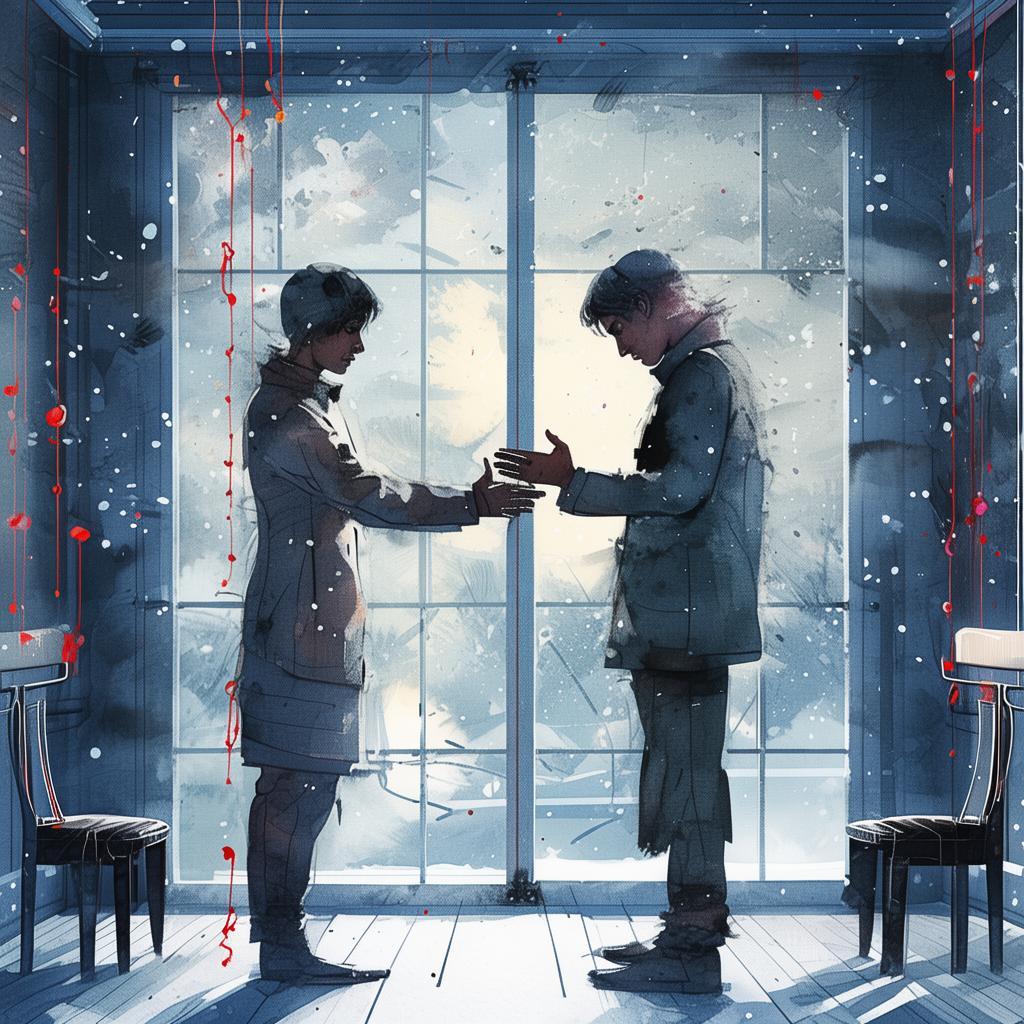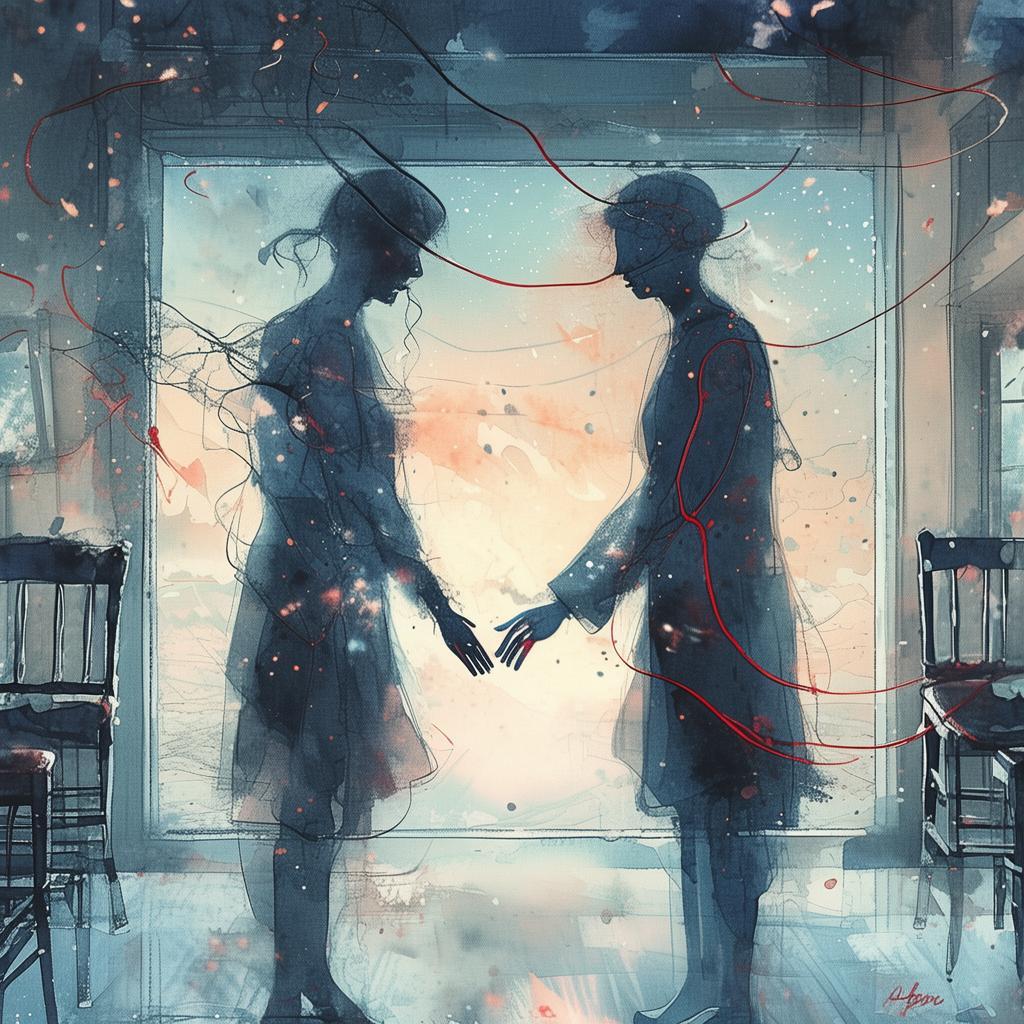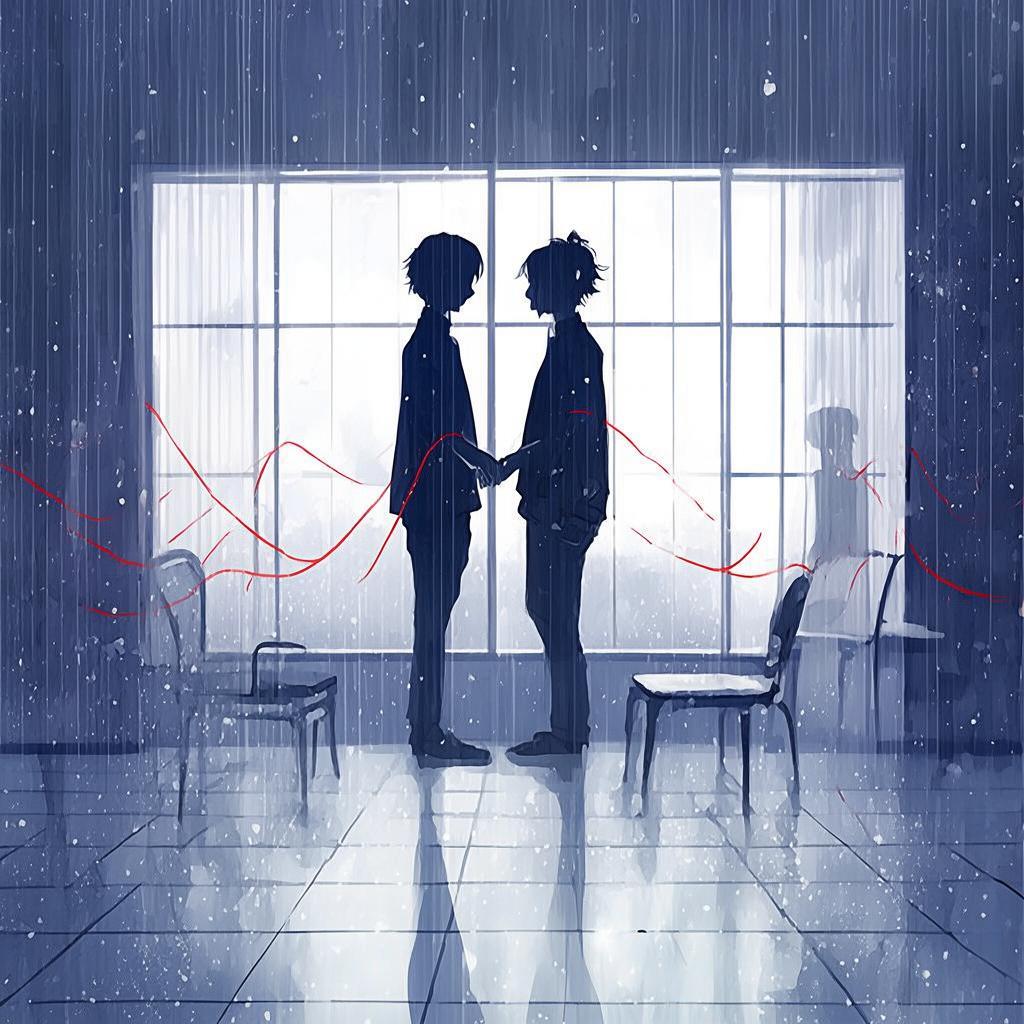The Echo of the Scholar's Call
In the ancient land of Jing, where scholars roamed freely, leaving their mark upon the world, there was a tale of two souls, Li and Mu, bound by a destiny as enigmatic as the art they pursued. Li, the Wandering Scholar, was known for his unparalleled talent and his unyielding spirit, while Mu, a master of the arts, was revered for his profound understanding and his ability to transform the simplest of acts into a spectacle of beauty.
The stage was set in the vibrant city of Chang'an, where scholars and artists gathered from across the land to showcase their skills and wisdom. It was here that Li, in his quest for knowledge and enlightenment, crossed paths with Mu. Their friendship was instantaneous, a bond forged by their shared passion for the performing arts and a mutual respect for each other's talents.
Li, with his scholarly mind and quick wit, quickly became a favorite among the scholars. He was a master of calligraphy, a connoisseur of ancient texts, and a prodigy in music. Mu, on the other hand, was a master of the guqin, a traditional Chinese lute, whose melodies could stir the soul and evoke emotions that even the most stoic of listeners found difficult to contain.
Their friendship flourished as they explored the world together, each one learning from the other and growing as individuals. But as the years passed, Li found himself drawn to the mysteries of the past, the secrets hidden within the ancient texts that spoke of a rebirth, a transformation that could only be achieved through the arts. Mu, ever the pragmatist, was skeptical but intrigued by the idea of rebirth.
One fateful day, as they wandered through the bustling streets of Chang'an, they stumbled upon a hidden theater, its entrance shrouded in mystery. Inside, they found a performance unlike any they had ever seen—a play that spoke of a wandering scholar and his master, of love and loss, of rebirth and the eternal quest for enlightenment.
The play was a mirror to their own lives, and as it unfolded, Li and Mu felt an inexplicable connection to the characters. They were drawn deeper into the world of the performing arts, where every gesture, every word, was imbued with meaning. It was here that Mu discovered a secret he had never known before—the existence of a lost art form, a dance that spoke of rebirth, of the eternal cycle of life and death.
Li, filled with a newfound purpose, began to study the ancient texts, searching for clues about the lost dance. Mu, ever the support, was by his side, helping to decipher the cryptic verses and guiding Li through the world of performing arts. Their bond grew stronger, their friendship deepening into something more profound, a love that was as powerful as the art they both cherished.
As they delved deeper into their studies, they uncovered a shocking truth—the lost dance was not just a performance; it was a ritual, one that could bring about rebirth, a rebirth that would unite their souls for eternity. But to achieve this, they would have to face the darkest of their fears, the deepest of their pain, and overcome the obstacles that stood in their way.
Their journey was fraught with challenges, as they navigated the treacherous waters of political intrigue and personal betrayal. They were forced to confront the demons of their past, to confront the reality of their own mortality, and to choose between love and life. But through it all, they remained steadfast in their pursuit of the lost dance, their love for each other the driving force behind their journey.
The night of the performance arrived, and as they took the stage, the air was thick with anticipation. The audience was silent, their eyes fixed on the two scholars, their hearts racing with a mix of fear and excitement. Li and Mu danced, their movements fluid and graceful, a tapestry of love and loss, of rebirth and the eternal cycle of life.
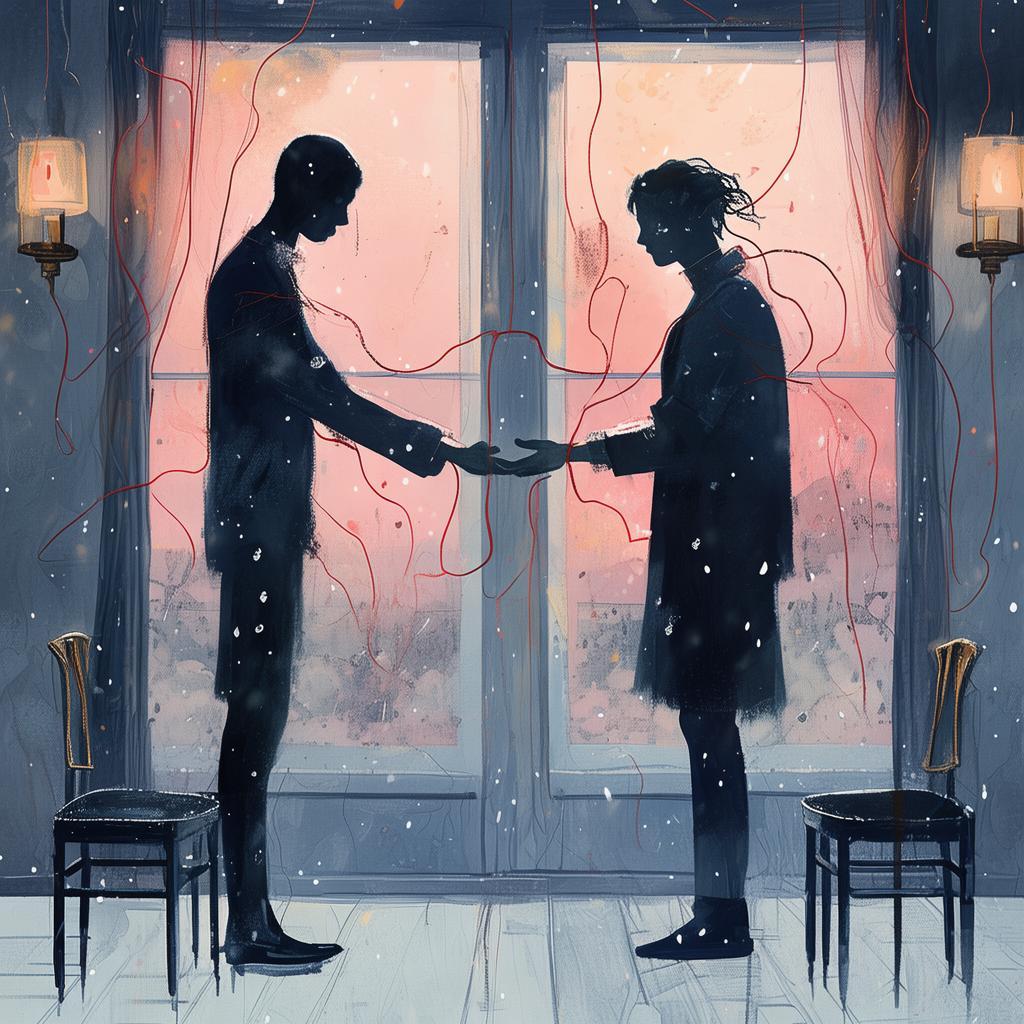
As the final note of the guqin resonated through the theater, the audience erupted into applause, their cheers echoing through the night. But for Li and Mu, the true audience was the one they loved, the one who had shared their journey, the one who had become their soulmate.
The ritual was complete, and as the last notes of the guqin faded, Li and Mu felt a profound sense of peace. They had achieved what they had set out to do, not just for themselves, but for the world. The lost dance had been reborn, and with it, a love that would endure for eternity.
The Echo of the Scholar's Call was a testament to the power of love, the resilience of the human spirit, and the eternal quest for enlightenment. It was a story that would be told for generations, a story of two souls bound by destiny and love, whose journey through the world of performing arts would inspire all who heard it.
✨ Original Statement ✨
All articles published on this website (including but not limited to text, images, videos, and other content) are original or authorized for reposting and are protected by relevant laws. Without the explicit written permission of this website, no individual or organization may copy, modify, repost, or use the content for commercial purposes.
If you need to quote or cooperate, please contact this site for authorization. We reserve the right to pursue legal responsibility for any unauthorized use.
Hereby declared.
